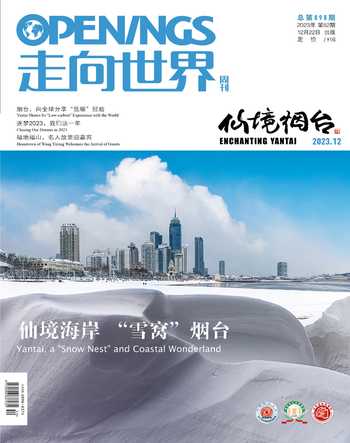风雪“逛海人”
陈文念

逛海,是生活在海边的人们耳熟能详的字眼,是大多数人都熟悉的老行当,假若你出生地远离大海那就很难理解这“逛海”的内涵,甚至会对“风雪逛海”更感到惊讶和奇怪。
逛海人,望文生义,从它表面的词义上解读,就是闲游、游览大海,但在海边长大的人跟前,你这样理解就大错而特错了,海边人没有那么浪漫的诗意生活,他们对身边的大海熟视无睹,缺乏闲情逸致的雅兴。所谓的“逛海人”就是趁恶劣的天气赶到海边,欲从大海里寻觅各种物资和海珍品。尤其是大风过后和凛冽的冬季,一批批“逛海人”就像接到无声的命令,会准时出现在家乡的大海边。
上个世纪六十年代中期,我还不到上学年龄,便常住姥爷家。印象里,姥爷就是一个名副其实的“逛海人”。每到冬季风雪冒烟,寒风呼啸,姥爷格外惊醒,睡得觉就少了,心事就来了,像换了一个人似的。
凌晨四五点鐘,窗外黑乎乎一片,姥爷点上小煤油灯,起身穿好衣服,坐在炕头上,端起尺余的烟袋,“吧嗒、吧嗒”地抽完烟,借着微弱的灯光,望着窗外纷纷扬扬的大雪,姥爷就要去“逛海”了。似乎越是这样恶劣的天气,姥爷越要走出家门,与风雪拥抱,与大海相伴,去拣回大海潮上来那些他眼中的“宝贝”。
离家前,姥爷穿上了一件破棉袄,紧紧腰间一个麻绳,戴上棉帽子,穿上水靴,携带逛海的工具,走出家门,冲进夜色茫茫的暴风雪里。
地面上全堆着雪,没有了路,村舍好像穿上了白色盛装,那年头的雪比现在下得大,脚一踩上去就陷有半尺深,风在空中怒吼,大海咆哮的声音凄厉。此时的姥爷就像是“龙王让我来寻海了!”不留下一点空隙和盲区,他沿着村里的海岸东边,深一脚浅一脚地走到西边,再从西边寻觅到东边,借着手电筒微弱的光,仔细寻觅着。
那时我年少不懂事,每看到姥爷捡回的鱼、海参、海箍子等海珍品,只顾高兴地美美地享用,岂不知姥爷捡回家的这些东西和海产品是饱受了寒冷,甚至是冒着很大的风险才弄回家的。
“逛海”生涯,整整陪伴姥爷一生,风雪逛海这行当虽然辛苦,但总能在那个时代让一家老少吃上点好东西。
Sea strolling, a familiar term for people living by the seaside, is an ancient line of business familiar to most people. However, if you were born far away from the sea, it is difficult for you to understand the meaning of “sea strolling” and you may even be surprised about the expression of “sea strolling in wind and snow”.
Literally, sea strollers mean those who stroll along the beach and enjoy the sight of sea. But if you grow up by the seaside, you know such an understanding is totally wrong. Actually, people living by the seaside have no such romantic and poetic life and they usually turn a blind eye to the sea around them, lacking interest in the leisure of sightseeing. As a matter of fact, the so-called “sea strollers” are those who rush to the beach during bad weather to search for various supplies and treasures from the sea. Especially after strong winds and in harsh winters, batches of “sea strollers”appear on time at the seaside of my hometown as if following silent commands.

